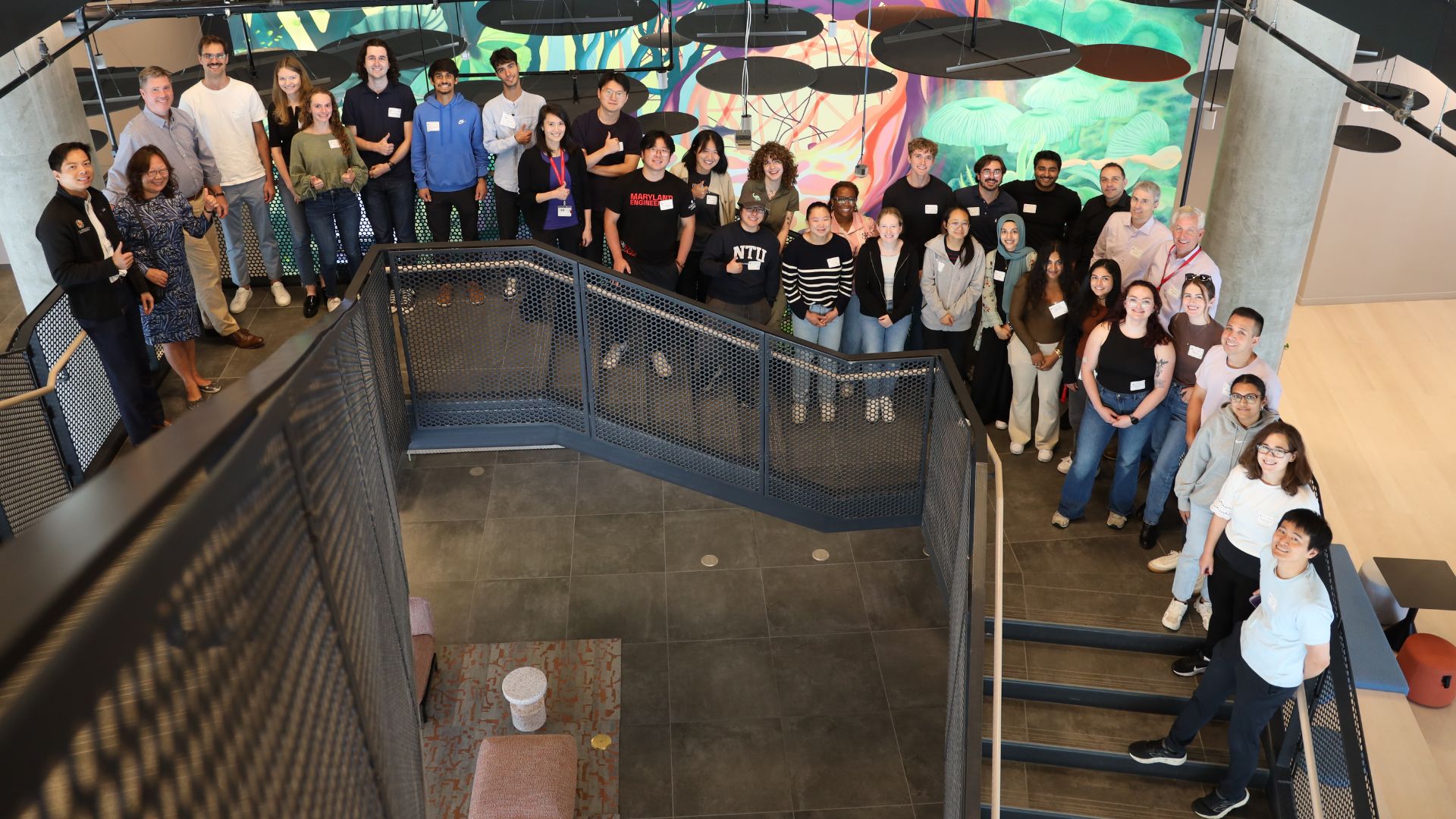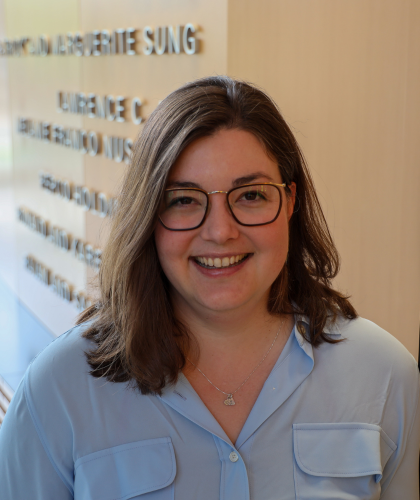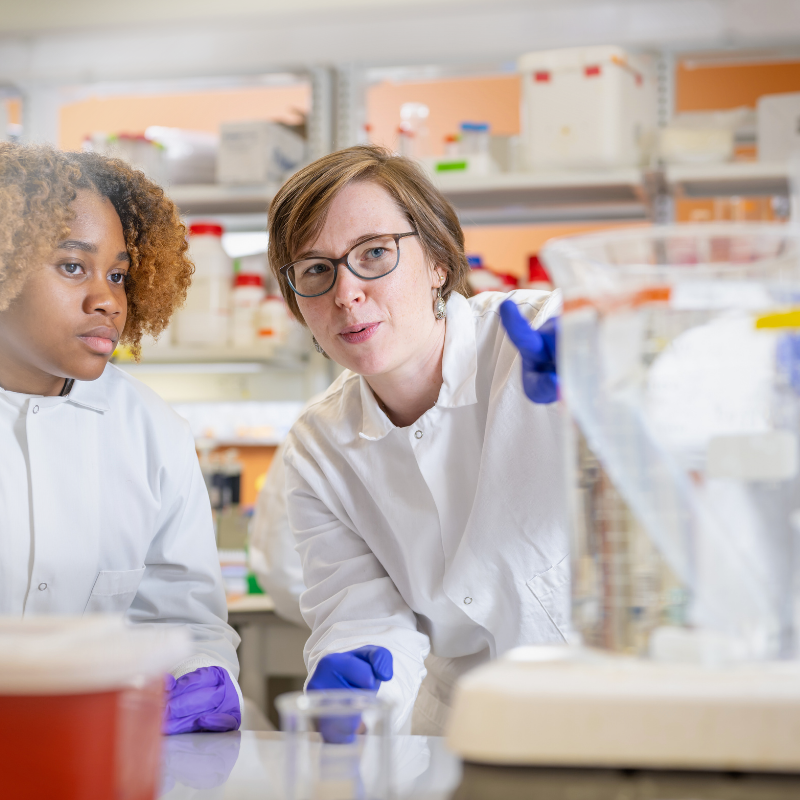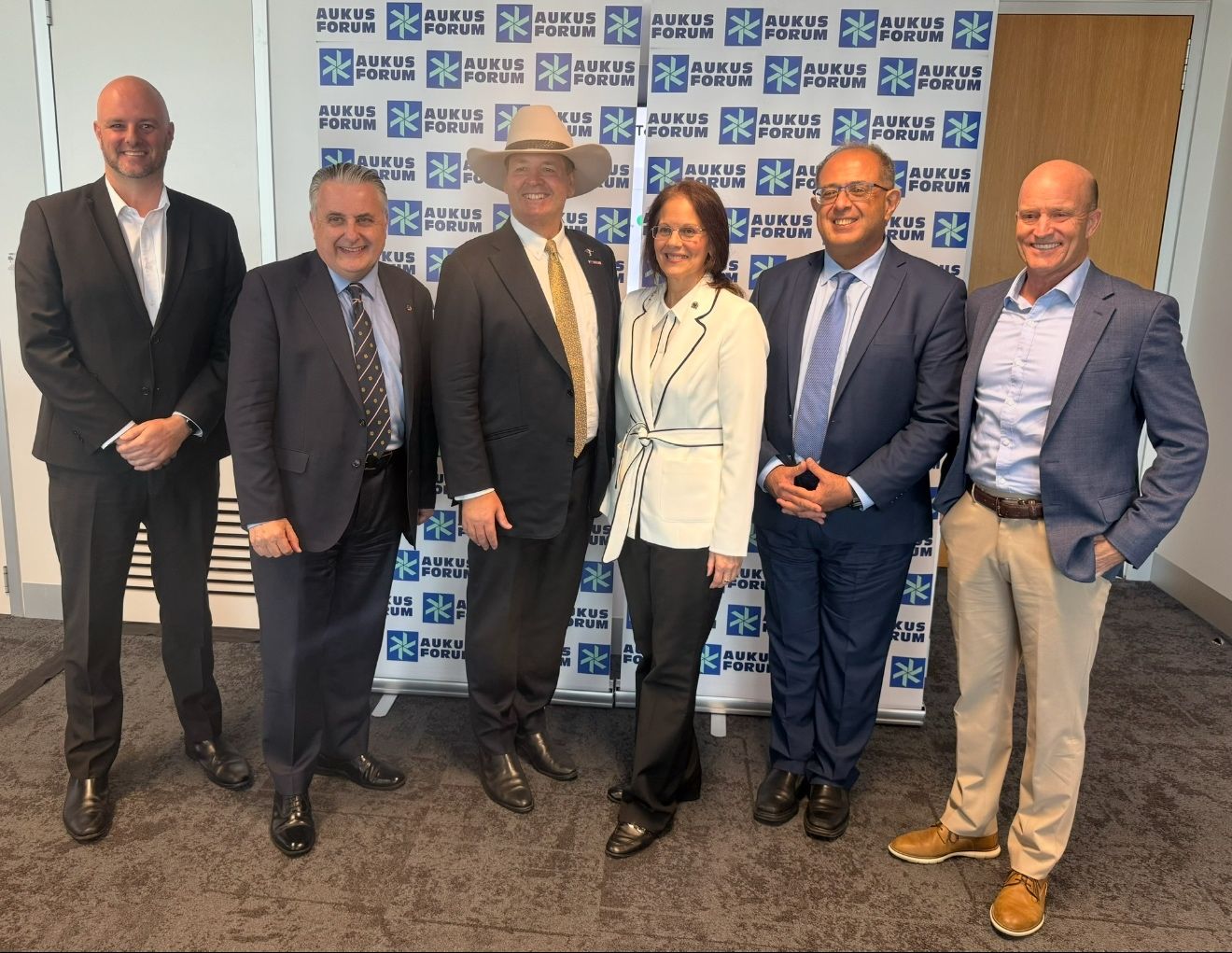News Story
Two BIOE Students Win Outstanding Graduate Assistant Awards
The Outstanding Graduate Assistant Awards celebrate the contributions of graduate students and their accomplishments across the University of Maryland (UMD). With approximately 4,000 graduate students serving as teaching, research, or administrative assistants, these awards honor the top 2% of campus graduate assistants, recognizing their significant impact on the university. Two graduate students from the Fischell Department of Bioengineering (BIOE) were selected for these awards: Ann Ramirez and Callie Weber.
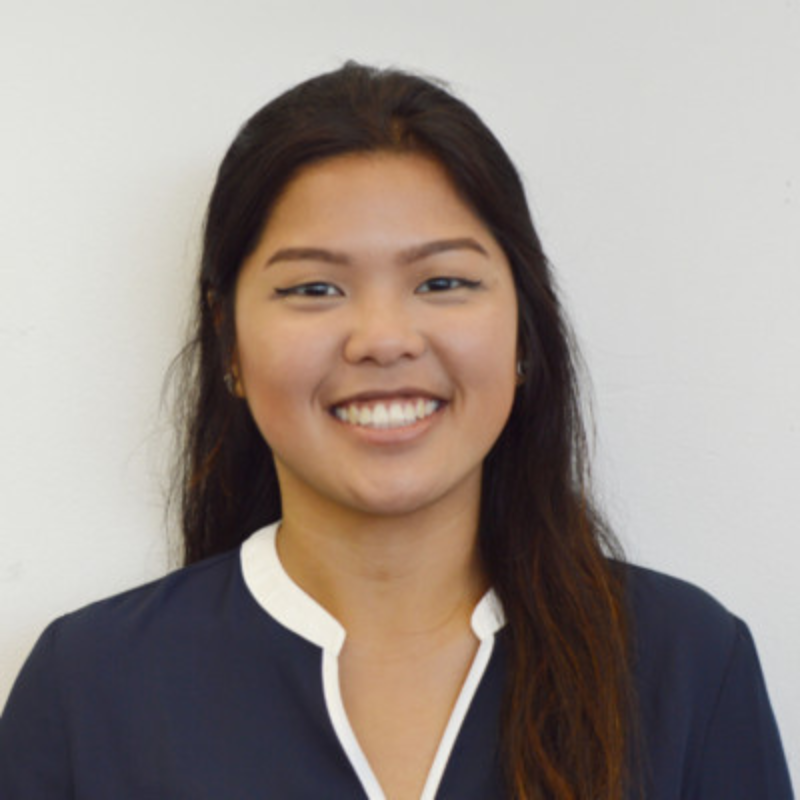 Ann Ramirez is a Ph.D. candidate and graduate assistant in the BIOE Mucosal Associated Immune System Engineering and Lymphatics Lab. Ramirez was introduced to the lab as a UMD Clark Fellow and was one of only two other graduate students there. At the time, Ramirez joined Principal Investigator and BIOE Assistant Professor Katharina Maisel to collaborate with a lab at the University of Virginia to learn and utilize their approach. This endeavor became the driving factor of her thesis, which developed a nanoparticle-based tool to study the biophysical properties of lymph nodes (LNs).
Ann Ramirez is a Ph.D. candidate and graduate assistant in the BIOE Mucosal Associated Immune System Engineering and Lymphatics Lab. Ramirez was introduced to the lab as a UMD Clark Fellow and was one of only two other graduate students there. At the time, Ramirez joined Principal Investigator and BIOE Assistant Professor Katharina Maisel to collaborate with a lab at the University of Virginia to learn and utilize their approach. This endeavor became the driving factor of her thesis, which developed a nanoparticle-based tool to study the biophysical properties of lymph nodes (LNs).
As a Ph.D. student, Ramirez was determined to grow as a leader to prepare herself as a guiding figure for other students. She has contributed to outreach initiatives in New Jersey schools, aiming to increase participation in science and research among individuals from underrepresented communities.
“These teaching moments show me how much I have grown as a scientist and that I think more deeply about the ‘why’ and ‘how’ of the scientific method,” Ramirez says.
Ramirez has additionally engaged in consulting projects facilitated by the UMD Robert H. Smith School of Business and Technology Transfer–UM Ventures Office, during which she provided assistance to research labs and local non-profit organizations with their business inquiries. Ramirez also led a team of undergraduate and graduate students in conducting a market analysis for Dashboard.Earth, a company that connects potential venture capitalists, angel investors, and nonprofits.
Currently, Ramirez is researching the properties of LNs. She's particularly interested in understanding how the body reacts to infections and vaccines, focusing on how these responses affect the tissues in LNs. These efforts have culminated in a published paper in Biomaterials Science.
Driven by a passion for scientific inquiry and community impact, Ramirez aims to lead her own research team in the future. She seeks to carve out her niche and contribute meaningfully to the scientific community.
“The intersection of immunoengineering and materials science is still what intrigues me, and I hope that by doing a postdoc I can continue to delve deeper into the field and inspire my scientific creativity.”
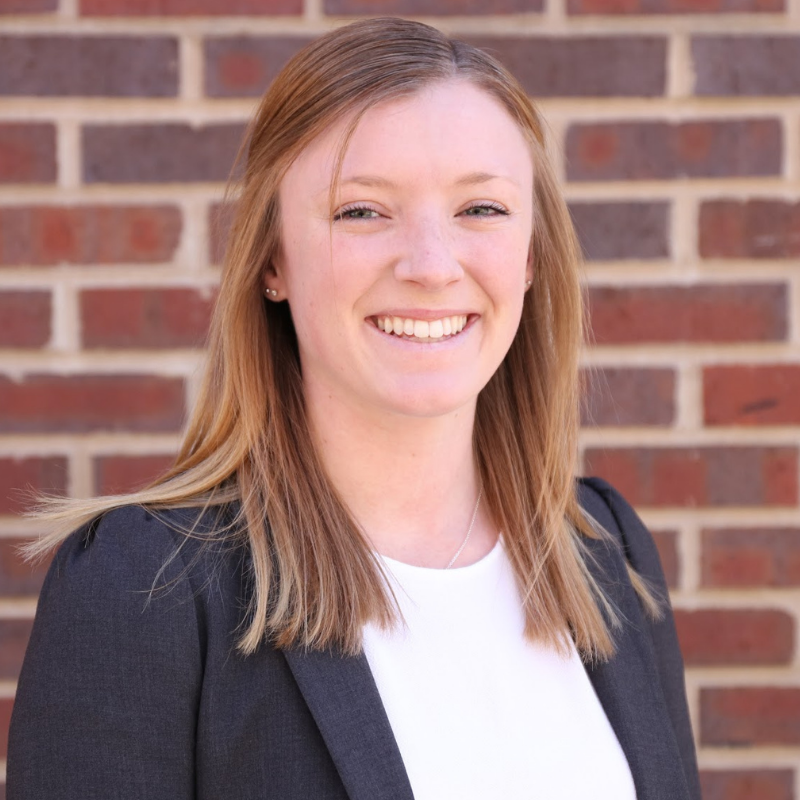 As a Ph.D. candidate and graduate assistant in the Vascular Kinetics Lab, Callie Weber has recently made significant strides in her doctoral research. Under the guidance of her research advisor, BIOE Professor Alisa Morss Clyne, Weber took on a project examining sex differences in endothelial cell response to stress hormones. Weber’s completion of this project culminated in a paper recently published in Cellular and Molecular Bioengineering.
As a Ph.D. candidate and graduate assistant in the Vascular Kinetics Lab, Callie Weber has recently made significant strides in her doctoral research. Under the guidance of her research advisor, BIOE Professor Alisa Morss Clyne, Weber took on a project examining sex differences in endothelial cell response to stress hormones. Weber’s completion of this project culminated in a paper recently published in Cellular and Molecular Bioengineering.
“Callie is an inspiration to me, as she has forged her own path to a research career,” says Clyne. “When she integrates her educational experiences with her research in neurovascular disease, she will both enhance STEM workforce accessibility and improve quality of life for patients.”
In the Kinetics Lab, Weber researches the interaction between risk factors for Alzheimer's disease and the vascular dynamics within the brain. One such study investigated the potential of exercise training to enhance the functionality of brain blood vessels. Weber aims to understand the fundamental processes that contribute to protective effects against Alzheimer's disease by examining how it affects vascular health.
Weber looks ahead to a time when such insights could pave the way for more effective therapeutics: “Someday in the future, we may be able to design therapeutics that mimic the benefits of exercise preventing Alzheimer's,” she says.
Currently, Weber is immersed in her doctoral research on investigating how the APOE4 allele impacts BMEC glucose metabolism and transport. For this project, Callie collaborated with an investigator at the University of Maryland School of Medicine, utilizing CRISPR/Cas9 technology to modify hiPSC from an APOE 3/3 genotype to an APOE 4/4 genotype.
Her achievements were acknowledged early as she was awarded a National Science Foundation Graduate Research Fellowship during her first semester and recognized as a Clark Doctoral Fellow during her first year of graduate school. Weber is projected to have 15 publications by the completion of her Ph.D.
One of Weber’s proudest research achievements is the NSF Graduate Research Fellowship, which provided essential funding for her doctoral studies, validated her research efforts, and served as a catalyst for her academic and professional growth.
Looking ahead, Weber sets her sights on completing a postdoctoral fellowship in bioengineering, viewing it as a crucial step towards her ultimate goal of becoming a professor and leading her own research laboratory.
Published March 14, 2024
